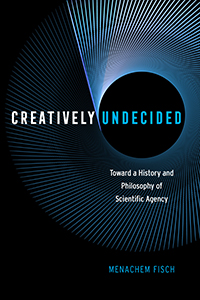Description
Thomas Kuhn and Karl Popper are believed by many who study science to be the two key thinkers of the twentieth century. Each addressed the question of how scientific theories change, but they came to different conclusions.
By turning our attention to ambiguity and indecision in science, Menachem Fisch, in Creatively Undecided, offers a new way to look at how scientific understandings change. Following Kuhn, Fisch argues that scientific practice depends on the framework in which it is conducted, but he also shows that those frameworks can be understood as the possible outcomes of the rational deliberation that Popper viewed as central to theory change. How can a scientist subject her standards to rational appraisal if that very act requires the use of those standards? The way out, Fisch argues, is by looking at the incentives scientists have to create alternative frameworks in the first place. Fisch argues that while science can only be transformed from within, by people who have standing in the field, criticism from the outside is essential. We may not be able to be sufficiently self-critical on our own, but trusted criticism from outside, even if resisted, can begin to change our perspective—at which point transformative self-criticism becomes a real option.
Reviews
“Deeply informed by the history of science and argued with philosophical rigor, this tour de force demonstrates the surprising yet essential role played in scientific revolutions by dithering.” Paul Franks, Yale University
“Creatively Undecided, as all great philosophical works, is both theoretically impeccable and meaningful for critically facing present-day ethical and political dilemmas. Fisch answers apparently abstract and cold questions pertaining to the philosophy of science and the history of mathematics, but–as a matter of fact–has something crucially important to say about one of the most pressing issues in our globalized and politically-torn world: how to self-criticize ‘from within’ our normative frameworks when challenged by competing cultures who confront us ‘from without.’ Fisch ends the book by testing his philosophical theses concerning agency and rational deliberation with a historical case: a masterful narrative of the contested reception of George Peacock’s “symbolical algebra” in early ninteeth century England.”
Niccolò Guicciardini, University of Bergamo
